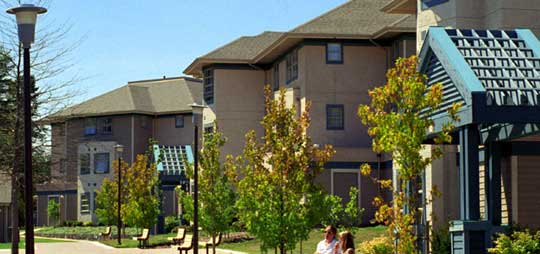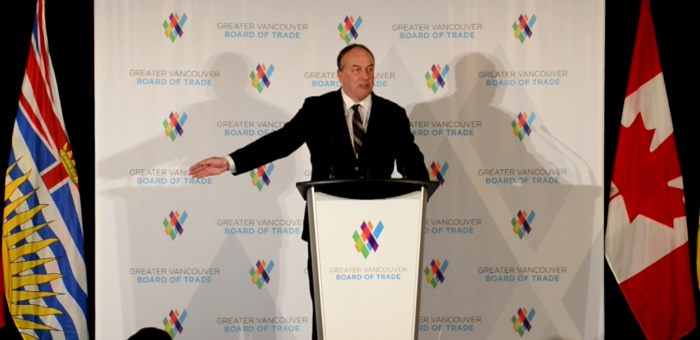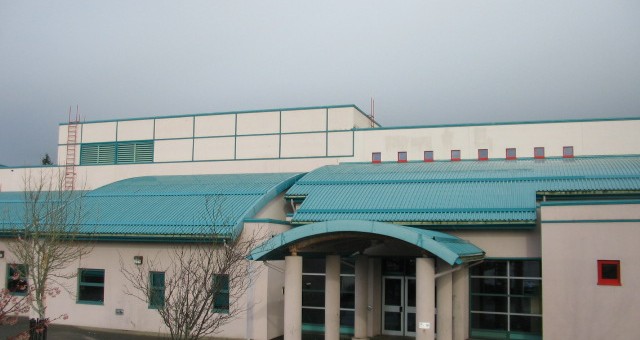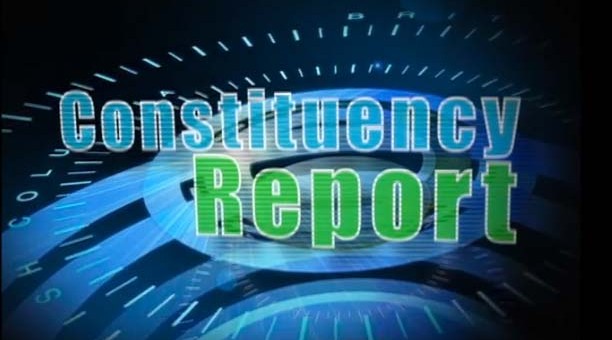Education
Reintroducing a Bill to Lower the Voting Age to 16 in British Columbia
Today in the legislature I reintroduced a bill that if enacted would lower the voter age in British Columbia from 18 to 16. The new name of the bill is Bill M220 — Election Amendment 1, 2017.
Those who have been following this site will know that last year, I initiated a conversation on whether or not we should reduce the voting age to 16. The response on social media was wonderful and we received many emails on the topic.
It turns out that this conversation is not only happening now in BC. Prince Edward Island held a referendum in the fall on electoral reform. The eligibility to vote will be extended to youth aged 16 and 17 in this referendum.
Below please find reproductions of both the text and video of the introduction of my bill. In addition, I reproduce the accompanying press release.
Text of Introduction
A. Weaver: I move that a bill intituled the Election Amendment Act, 2017, of which notice has been given, be introduced and read a first time now.
Motion approved.
A. Weaver: In this bill I’m introducing today, I would propose lowering the voting age to 16 in the province of British Columbia. There’s a lot of evidence to suggest that the earlier in life a voter casts their first ballot, the more likely they are to develop voting as a habit throughout their life.
It’s also a common misconception that 16-year-olds are not as informed on and engaged in political issues as older voters. The research, however, says otherwise. These young citizens of British Columbia are old enough to drive, pay taxes and sign up for the military. In fact, the notion of taxation without representation is one that is not founded within our democracy. We require representation with taxation. Austria, Argentina, Brazil, Germany and parts of the U.K. have extended voting rights to 16-year-olds, and it’s time British Columbia do the same.
I move that the bill be placed on the orders of the day for second reading at the next sitting of the House after today.
Madame Speaker: Hon. Member, was that No. 1 or No. 2?
A. Weaver: That was No. 1. I’m sorry. Thank you, hon. Speaker.
Madame Speaker: No worries.
Bill M220, Election Amendment Act 1, 2017, introduced, read a first time and ordered to be placed on orders of the day for second reading at the next sitting of the House after today.
Video of Introduction
Media Release
Andrew Weaver introduces bill to lower the voting age in B.C.
For immediate release
February 20, 2017
VICTORIA B.C. – Today Andrew Weaver, MLA for Oak Bay-Gordon Head, re-introduced the Election Amendment Act 1, which seeks to engage youth in politics through lowering the voting age to 16.
“There is a lot of evidence that shows that if we engage our youth earlier in the political process they are more likely to develop voting as a habit for the rest of their life,” says Weaver, also the Leader of the B.C. Green Party.
“I’ve been speaking to individuals of all ages since I introduced this bill last Spring. I have heard overwhelming support for lowering the voting age.
“The decisions we make today as legislators will have a profound impact on the lives of our youth. I can’t think of a good reason why they shouldn’t have a stake in those decisions.
“It appears there is a trickle-up effect in civic participation. When youth engage, conversations around the dinner table tend to focus on politics and local issues, which results in a positive impact on voter turnout for the whole family.”
Many other jurisdictions, including Austria, Argentina, Brazil, Germany, and parts of the UK, have extended voting rights to 16-year-olds. Scotland experimented by lowering the voting age in their independence referendum. It was so successful that they subsequently permanently dropped the voting age to 16 in all Scottish Parliament and local government elections.
-30-
Media Contact
Mat Wright – Press Secretary Andrew Weaver MLA
1 250 216 3382
mat.wright@leg.bc.ca
How is government responding to rental crisis in Metro Van & the CRD?
Today in the legislature I was up in Question Period. I took the opportunity to question the Minister of Advanced Education as to what he was doing with respect to allowing universities and colleges to build additional on-campus housing. My MLA colleague Rob Fleming also wrote about this last fall. We’ve offered a way forward and I’m pleased to say the government has finally agreed that this is a direction it is heading.
I have been waiting to raise this issue in the legislature since last spring (as I suspect Rob Fleming has). Unfortunately, with no fall session I did not get the opportunity to do this until today.
Below are the text and video of the exchange. I was disappointed with the answer to my supplementary question as I was hoping to get a more thoughtful response as to what is being done to address the extraordinarily low rental vacancy rates in the Capital Regional District and Metro Vancouver.
Question
A. Weaver: Students at British Columbia’s post-secondary institutions are struggling to find affordable rental accommodation. Yet at the same time, colleges and universities across B.C. are desperate to build more on-campus housing. The barrier to building such housing is access to capital and government concern about increased public debt and how it will affect our triple-A credit rating and, hence, the cost of servicing existing debt.
But if an external organization were to own the debt, there would be no risk to B.C.’s credit rating. Colleges and universities could service it through operating revenues generated from on-campus residence fees — a very captive audience that exists there. Housing more students on campus frees up off-campus rental units, thereby easing upward pressure on rents.
Will the government commit to exploring the creation of an external non-government organization that would own the debt, thereby allowing colleges and universities to build more on-campus housing?
Answer
Hon. A. Wilkinson: I thank the member from Oak Bay for his thoughtful and productive question, which distinguishes it from many in this room.
Now, the member is known to be a very clever man, but the ministry staff are at least a year ahead of him on this question. It’s actually interesting that yesterday I met with the president of the University of Victoria to discuss this very issue, because the prospects there are very strong for this exact opportunity to build student housing which will not form part of government debt.
The details of this arrangement need to be worked out. There are arrangements that need to be set up for the deal structure, for the financing vehicles. But I think the key point here is to congratulate the member for Oak Bay–Gordon Head for his insight, for his dedication to good public policy. I’m sure he’ll be so persuaded by his own genius that he won’t need to ask a follow-up question.
Supplementary Question
Well, I must say that was a somewhat patronizing response to a serious question. I would point out, in fact, that this lone B.C. Green MLA was several years ahead of the B.C. Liberals in identifying an affordability crisis in the province that they refuse to deal with.
There’s an ongoing affordability crisis not only in Metro Vancouver but here in the capital regional district. For many living in our two largest cities, home ownership is simply not an option for the foreseeable future. Yet at the same time, the private apartment rental vacancy rate in Victoria is 0.5 percent and in Vancouver it’s 0.7%.
My previous question offered one possible way for the government to reduce pressures on the existing rental stock, and I’m glad to see that they’re taking it up. But the question that I have is this: What other steps is this government taking to address the vacancy rates in Metro Vancouver and the CRD? And an answer that’s saying “build more stock” is simply not going to deal with the issue in the time required to deal with it. What is the government doing?
Answer
Hon. A. Wilkinson: The question actually reflects well into the member’s first question in that the novel housing arrangements for financing that we have come up in this government, courtesy of the Minister Responsible for Natural Gas Development and Housing, have provided this financing vehicle that’s provided 800 non-profit housing providers in more than 280 communities across British Columbia with support for more than 104,000 households.
The plans that the member calls upon are already being implemented. Since 2001 we have completed close to 24,000 new units of affordable housing, with more than 5,000 more units in development or under construction.
Thank you for the question. If you have any further, we’d be glad to answer them.
Video from Question Period
Speaking to the Greater Vancouver Board of Trade — A Vision for our Future
On Friday, February 3rd, I spoke to the Greater Vancouver Board of Trade. In my presentation I offered a vision for a prosperous British Columbia that builds on our strengths, not the weaknesses of others.
For those wondering about the direction that a BC Green government would take this province, please consider watching.
Video of Presentation to Greater Vancouver Board of Trade
It’s time to eliminate the high cost of upgrading high school courses
A number of constituents recently contacted me regarding the high cost of upgrading high school courses. To start the new year, and in anticipation of the upcoming provincial budget to be tabled in February, I wrote to the Minister of Education to ask that he consider removing the barriers to educational access that his government put in place in May 2015.
A non trivial component of the government’s surplus has come at the expense of those who can least afford it. Cuts to those seeking to upgrade their high school education to pursue work and educational opportunities do nothing more than perpetuate the poverty trap.
I reproduce the text of my letter below.
Text of the Letter
January 4, 2017
Honourable Mike Bernier
Ministry of Education
PO Box 9045, Stn Prov Govt
Victoria BC
V8W 9E2
Canada
Dear Minister Bernier,
I’m writing to you today in light of concerns that constituents have brought to my attention regarding the high cost of upgrading high school courses.
Since the subsidy was removed in May 2015, adults now face a fee to upgrade grade 11/12 courses, generally $500-$550 per course. This fee is placing a huge burden on families and individuals looking to upgrade their high school education and pursue work and educational opportunities.
I have learned that at the South Island Distance Education School (SIDES) in Victoria alone, there are hundreds of students who are unable to afford the fees of upgrading their courses, and thus remain on the waitlist; many more don’t even apply to join the waitlist, discouraged from doing so when they learn the cost.
In particular, these fees harm those who are seeking to upgrade their courses at secondary schools, since only courses taken at postsecondary institutions are eligible for tax deductions, reimbursement under RESPs, or the Adult Upgrading Grant.
This situation leaves a significant gap in our support for students, leaving those who upgrade their courses at secondary schools to pay course fees and to go without the financial assistance that benefits students at postsecondary institutions. It is not always an option to attend a post-secondary school: many low-income individuals need the flexibility of distance learning to enable them to balance their studies with their work.
I have heard from families who are struggling financially to help their children cover the costs of these courses. For others, the cost is too high a barrier to overcome, preventing motivated individuals from upgrading the courses they need to attend college or university, and therefore foreclosing the opportunities that would otherwise become available to them.
Currently, the BC Government is penalizing people who return to school, and preventing so many from upgrading their education and realizing the associated opportunities.
Please act to make adult education more accessible. This would be best achieved through reinstating the subsidies to these courses. In the absence of these subsidies, I ask you to extend the eligibility requirements for upgrading grants, to encompass students who upgrade their courses at secondary schools.
Sincerely,
Andrew Weaver
MLA, Oak Bay-Gordon Head
Constituency Report – October 2016
Constituency Report is a public service that Shaw TV graciously offers MLAs. This month’s video is provided below.
Judy Fainstein and I once more tried something different. The first segment follows the usual discussion of legislative issues relevant to Oak Bay-Gordon Head and British Columbia in general. In the second segment, I introduce Maxwell Nicholson, Director of Campaigns & Community Relations with the University of Victoria Student’s Society. We explore a number of issues facing students in Greater Victoria.
As always, I’d be interested in your feedback on this constituency report.








